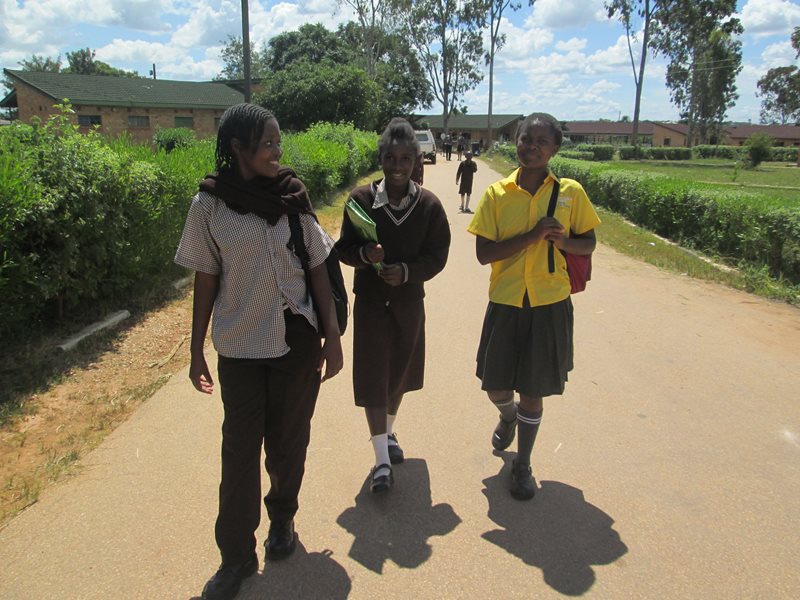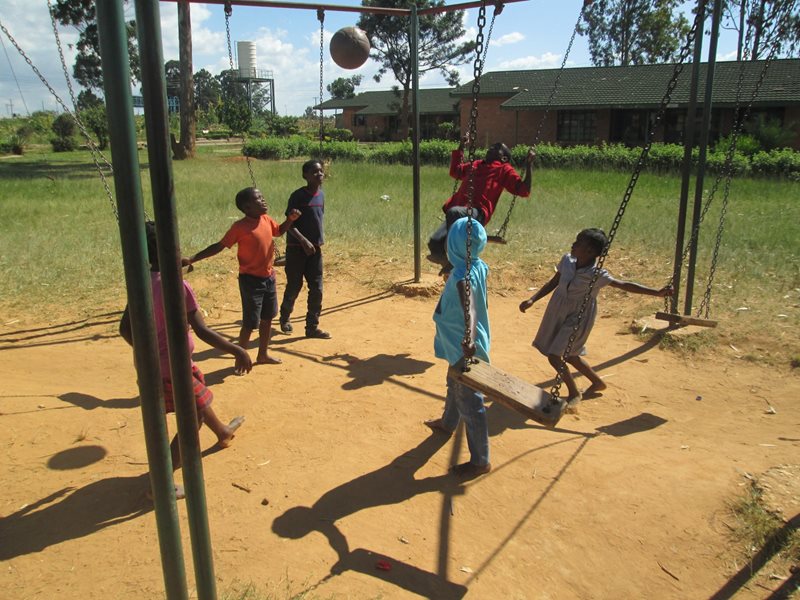When parents take ill, children are left to fend for themselves

Lusaka has a population of around 2.2 million. Levels of poverty in this metropolis remain high at over 50 per cent. In addition, inflation and rises in food prices often make it difficult for parents to ensure sufficient food for their children. The result is malnutrition, which in turn leads to stunting (lower than age-appropriate height): over 50 per cent of children under the age of five in Lusaka are affected by this.
HIV/AIDS also continues to be a problem that severely affects the population of the entire country and the capital city in particular – according to some estimates as many as one in five people living in Lusaka has HIV/AIDS. Knowledge and awareness of the disease have increased in recent years, but stigmatisation and discrimination remain common. Although medical treatment is better in the capital city than in other areas of the country, there is still a shortage of healthcare workers.
The high HIV/AIDS prevalence affects children very severely: when families and communities are affected, children often lose the love, care and protection they need to grow up into healthy adults.
Young people need support in order to become successful adults
The bonds that are formed in an SOS family last a lifetime, and we consider it part of our remit to support children as they make the transition into adulthood. When young people who grew up in an SOS family reach an age where they feel ready to move out of the family home in order to pursue further education or vocational training, the SOS Youth Programme continues to support them.
We make shared accommodation available where the young people live together and are supervised by an SOS educator who assists them and provides guidance. This way, they gradually learn to take responsibility and prepare for independent life. In addition, the SOS Vocational Training Centre in Lusaka offers courses in metalwork, woodwork, construction, agriculture and tailoring to around 160 students from around the country.
What we do in Lusaka

SOS Children’s Villages began its work in Lusaka in 1999.
Strengthen families: In recent years, we have expanded our family strengthening programme in the region so as to reach as many struggling families as possible. The aim is to alleviate hardship and maintain family stability so that children will be safe and protected and grow up in a loving home.
The SOS Social Centres in Lusaka and nearby Chanzanga West ensure that children have access to essential health and nutritional services, as well as education. We assist parents by providing guidance on income-generating skills and parenting practices, as well as counselling and psychological support where needed. Our support goes out especially to families who have been affected by HIV/AIDS. In cooperation with local organisations, we also work towards strengthening the support systems for vulnerable families within the community.
Care in SOS families: For children from the region who are no longer able to live with their parents, SOS families can provide a loving home. In each family, the children live with their brothers and sisters, affectionately cared for by their SOS parent.
Education: The children attend the SOS Kindergarten in Lusaka together with children from the neighbourhood, which ensures that they are integrated into the local community from a young age. The children then go on to complete their primary and secondary education at the SOS schools, which are attended by almost 1,000 pupils from the region.